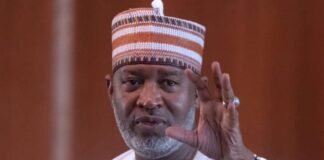President Bola Tinubu has announced a state of emergency on food security in Nigeria. The President has directed that the National Security Council include matters concerning food and water availability and affordability, recognizing them as essential for livelihood. The aim is to support the most vulnerable members of society. The rising cost of food and its impact on citizens’ finances is not lost on the President.
To mitigate the effects of subsidy removal, the President has instructed the immediate release of fertilizers and grains to farmers and households. Furthermore, there will be a concerted effort to ensure adequate irrigation of farmlands throughout the year by fostering collaboration between the Ministry of Agriculture and the Ministry of Water Resources.
The President plans to establish a National Commodity Board to review and assess food prices continuously, as well as maintain a strategic food reserve to stabilize prices of critical grains and other food items. Various stakeholders, including agricultural organizations, seed companies, research institutes, and the private sector, will collaborate to support the President’s intervention efforts. The security architecture will be engaged to protect farms and farmers from attacks, allowing them to operate without fear.
The President also emphasized that the Central Bank of Nigeria will continue to play a role in funding the agricultural value chain. Additionally, 500,000 hectares of land have been mapped to increase the availability of arable land for farming. The President aims to boost revenue from food and agricultural exports and this is part of the reasons he declared the state of emergency for food security.
Overall, President Bola Tinubu’s declaration of a state of emergency on food security in Nigeria involves various measures to ensure adequate food supply, stabilize prices, and support farmers.








